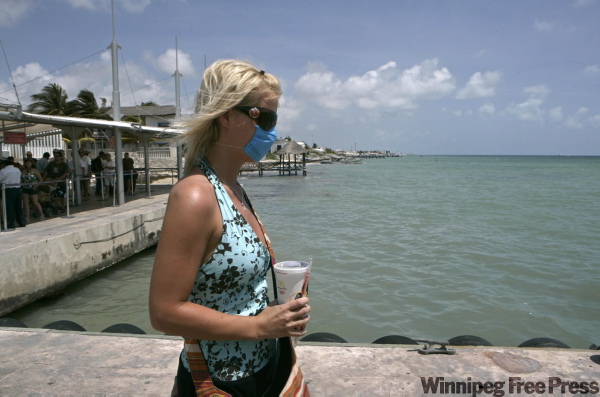Outbreak paralyzes Mexico City, spreads elsewhere
Advertisement
Read this article for free:
or
Already have an account? Log in here »
To continue reading, please subscribe:
Monthly Digital Subscription
$1 per week for 24 weeks*
- Enjoy unlimited reading on winnipegfreepress.com
- Read the E-Edition, our digital replica newspaper
- Access News Break, our award-winning app
- Play interactive puzzles
*Billed as $4.00 plus GST every four weeks. After 24 weeks, price increases to the regular rate of $19.00 plus GST every four weeks. Offer available to new and qualified returning subscribers only. Cancel any time.
Monthly Digital Subscription
$4.75/week*
- Enjoy unlimited reading on winnipegfreepress.com
- Read the E-Edition, our digital replica newspaper
- Access News Break, our award-winning app
- Play interactive puzzles
*Billed as $19 plus GST every four weeks. Cancel any time.
To continue reading, please subscribe:
Add Free Press access to your Brandon Sun subscription for only an additional
$1 for the first 4 weeks*
*Your next subscription payment will increase by $1.00 and you will be charged $16.99 plus GST for four weeks. After four weeks, your payment will increase to $23.99 plus GST every four weeks.
Read unlimited articles for free today:
or
Already have an account? Log in here »
Hey there, time traveller!
This article was published 29/04/2009 (6009 days ago), so information in it may no longer be current.
AN escalating viral outbreak with pandemic potential continued its slow paralysis of Mexico’s once-bustling capital city Tuesday as a growing number of swine-flu cases in the U.S., Canada and elsewhere left the world bracing for the impact of a deepening global public-health crisis.
Nowhere were matters more urgent than in Mexico City, where swimming pools and pool halls were closed, restaurants offered only takeout and officials contemplated severing the city’s spinal column: a serpentine subway system that ranks as the seventh-busiest in the world.
But the sense of alarm was mounting elsewhere, as well, as the number of confirmed cases in the U.S., including at least five involving hospitalization, climbed to 68, up from 40 on Monday.

"I fully expect we will see deaths from this infection" as cases are investigated, said Richard Besser, acting director of the federal Centers for Disease Control and Prevention in Atlanta.
Canada confirmed seven more cases, bringing its total to 13 — four in Nova Scotia, four in Ontario, three in B.C. and two in Alberta. All 13 cases were described as mild, but that offered little comfort to officials all too familiar with influenza’s notoriously unpredictable nature.
"Anybody who thinks they know what this virus is going to do weeks, months or years from now really doesn’t have a clue what they’re talking about," said Dr. Michael Osterholm, director of the Center for Infectious Disease Research and Policy at the University of Minnesota.
In New York, where the bulk of the American cases are concentrated, several hundred students had fallen ill at a school already hit by the outbreak after a group of students went on a spring break trip to Mexico, city officials said.
"It is here and it is spreading," New York City Health Commissioner Thomas Frieden said of the virus. "We do not know whether it will continue to spread."
Outside of North America, there were 17 other confirmed cases: two in Scotland, 11 in New Zealand, two in Spain and two in Israel.
In Mexico, some 159 deaths have been attributed to the outbreak, which is confirmed or suspected in 2,498 cases of illness. But the toll appeared to be stabilizing, the health secretary said late Tuesday, with only seven more suspected deaths.
So far, swine flu has not been blamed for any deaths outside Mexico, but officials have warned that’s almost certain to change. U.S. President Barack Obama asked Congress for $1.5 billion to fight the fast-spreading disease as federal officials suggested the flu may be spreading so fast, there may be no practical way to contain it.
"Based on the pattern of illness we’re seeing, we don’t think this virus can be contained," Rear Admiral Anne Schuchat, the CDC interim science and public health deputy director, told a Senate health subcommittee.
"We do think we can reduce the impact of its spread, and reduce its impact on health." Still, she warned, not only might the disease get worse, "it might get much worse."
In Mexico City, widely viewed as the epicentre of the outbreak, officials moved to prevent people from getting together in large gatherings — public facilities like gyms, movie theatres, zoos and museums were ordered to shut their doors. Schools remained closed.
— The Canadian Press, with files from The Associated Press






